Car (AUDI) External Flow CFD Simulation, ANSYS Fluent Training
Free
- The problem numerically simulates the Car (AUDI) External Flow using ANSYS Fluent software.
- We design the 3-D model by the Design Modeler software.
- We Mesh the model by ANSYS Meshing software, and the element number equals 4950697.
To Order Your Project or benefit from a CFD consultation, contact our experts via email (info@mr-cfd.com), online support tab, or WhatsApp at +44 7443 197273.
There are some Free Products to check our service quality.
If you want the training video in another language instead of English, ask it via info@mr-cfd.com after you buy the product.
Description
Description
This project will study an incompressible isothermal air flow adjacent to an Audi-A4-2017 car by ANSYS Fluent software. The maximum speed of 77.76 m / s, which is relatively high, is selected for the testing, and the drag force value is obtained.
Methodology
The 3-D geometry of the model is designed using Design Modeler software. The present model includes a rectangular cubic computational domain with dimensions of 20 m * 10 m * 5 m for airflow, in which an AUDI vehicle is located.
The model meshing has been done using ANSYS Meshing software, and the mesh type is unstructured. The element number is 4,950,697, and the meshing accuracy is higher in the vicinity of the vehicle surfaces.
Conclusion
After the solution has been converged, the results could be observed through post-processing. Meanwhile, the drag value was monitored during the solution iterations to assure an excellent convergence.
In this study, the solution was a converged one when the drag force reached a constant value and the residuals were below 10-5 values. As the results show, most drag forces are due to pressure forces, and the share of frictional forces in drag is low.
The highest pressure occurred in the front and back of the car, which happened in these areas due to the minimum velocity contour. The velocity vectors indicate that there is flow separation at the front and rear of the vehicle.
This separation is more concentrated in the front of the car and is wider in the back of the vehicle, which can be attributed to the broader geometry in the back of the car. The pressure on the surface of the car body is almost evenly distributed, but in areas with a greater angle to the flow direction, this pressure is higher.
The more perpendicular the surface is to the flow, the greater the pressure on it. Also, the pressure on the sharp edges, especially on the front wheel and the edge of the front window, is negative, and the speed in these areas has increased, which can be attributed to the rapid change in the flow angle due to the change in fracture.
The Shear force contours also show that the flow separation started when these contours changed sign. The drag force obtained in this problem is 1684.74 Newtons.

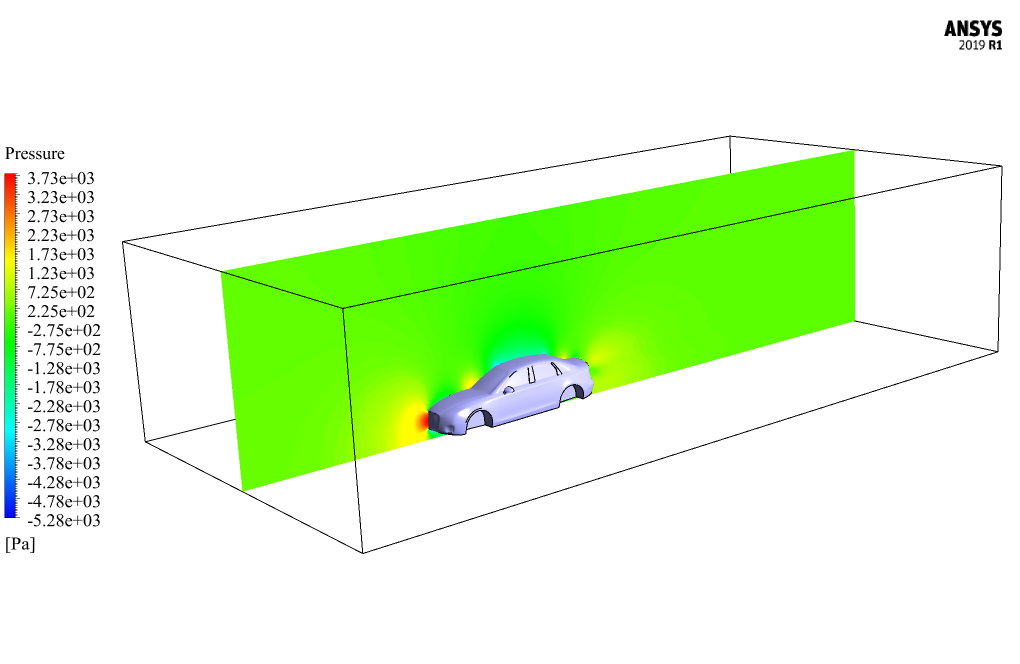
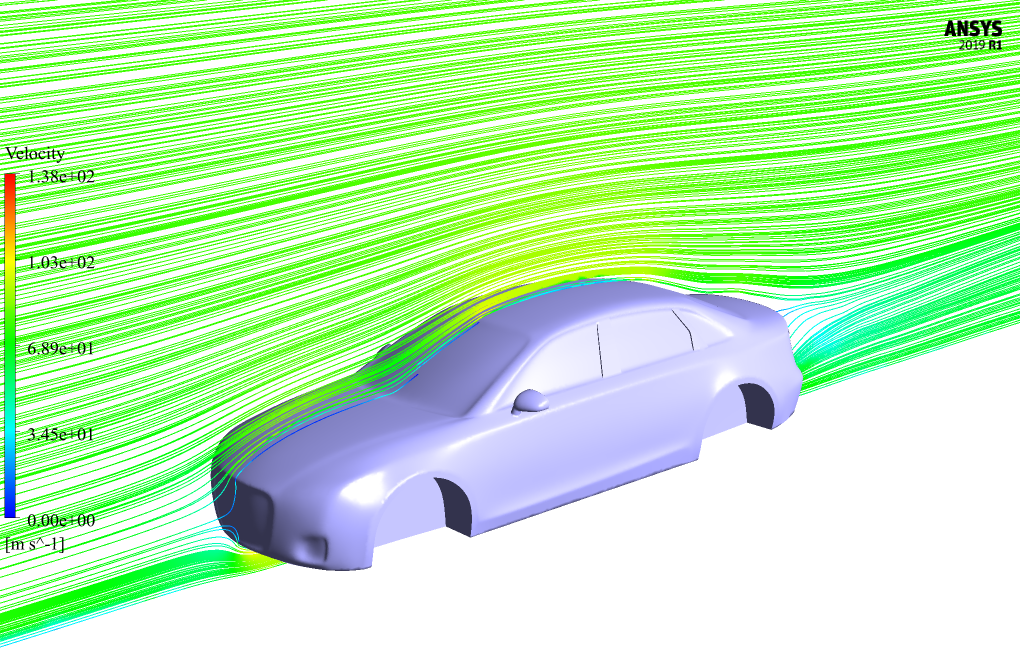
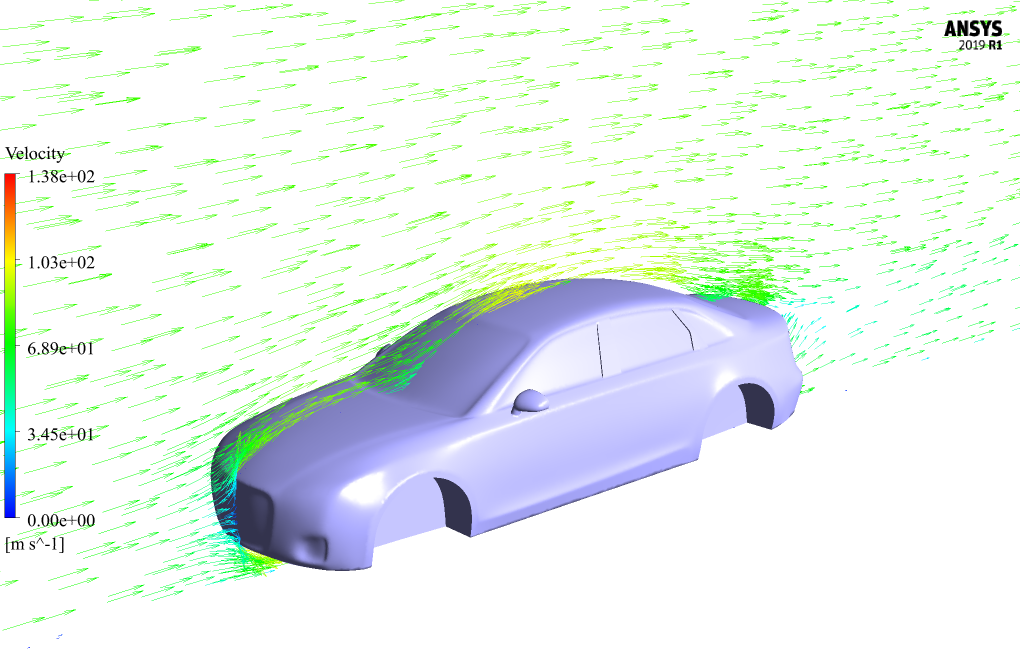
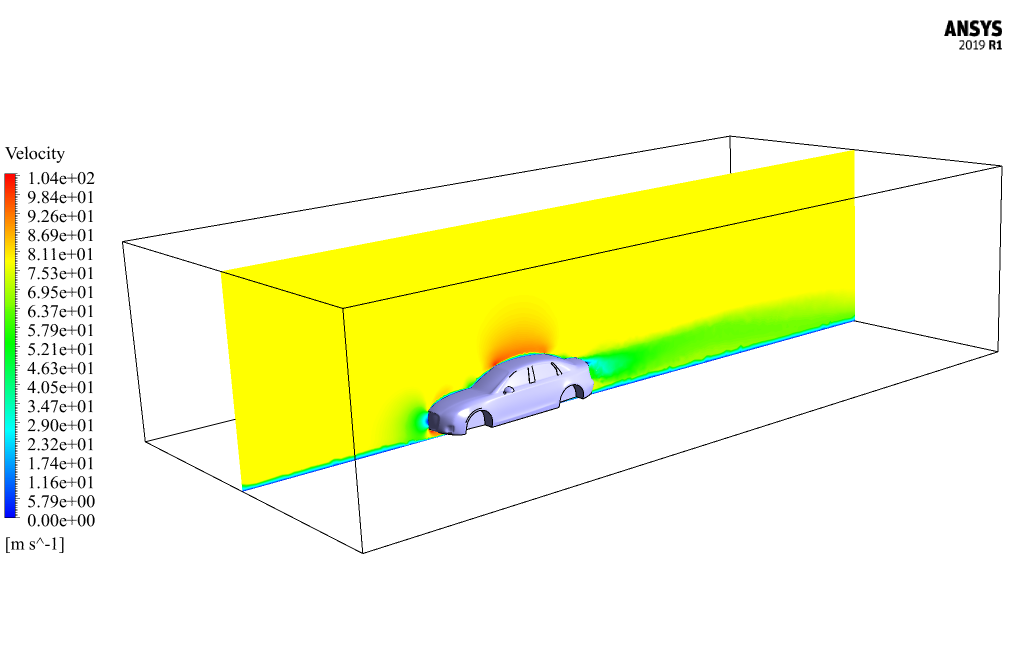
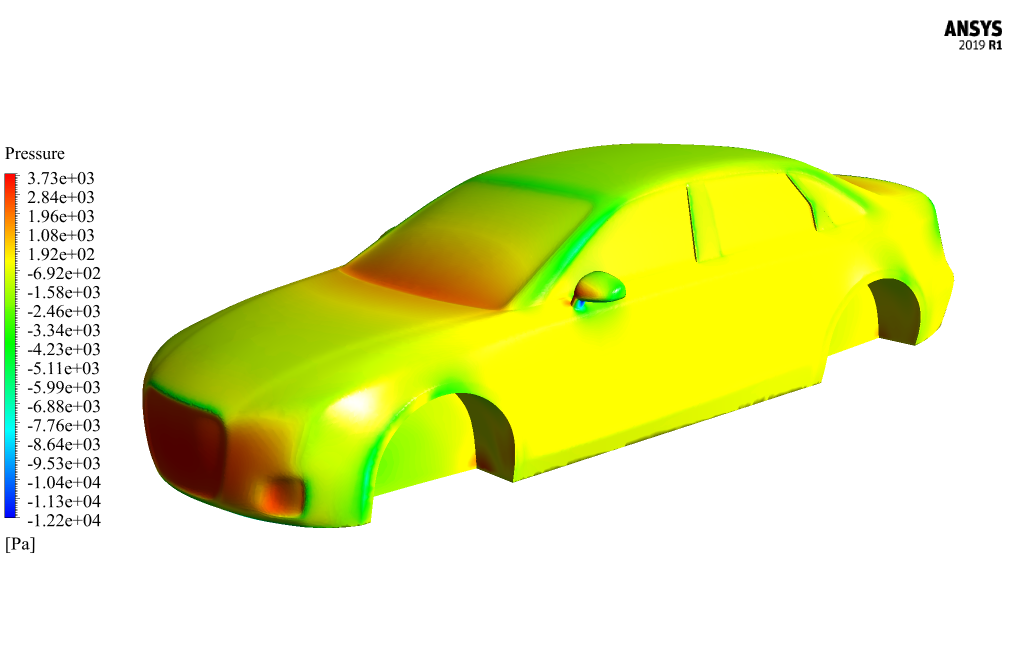
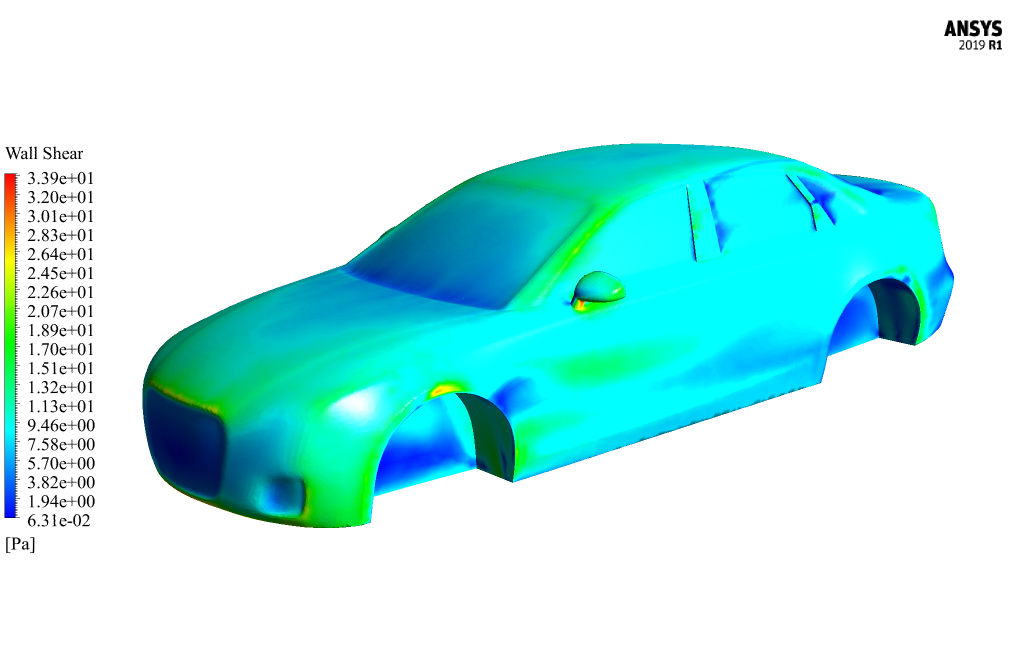

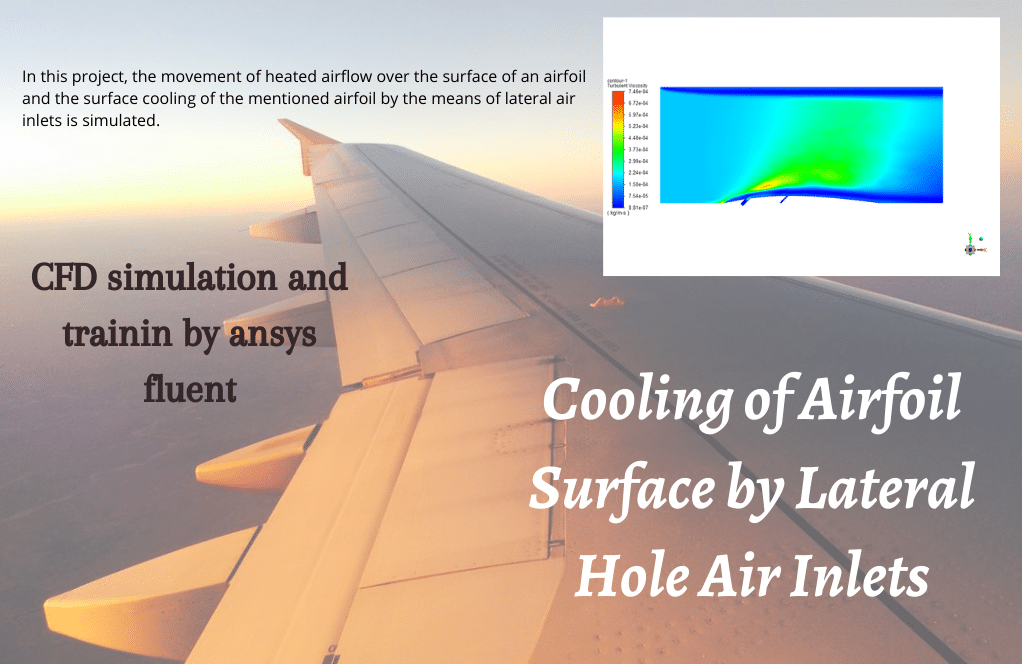
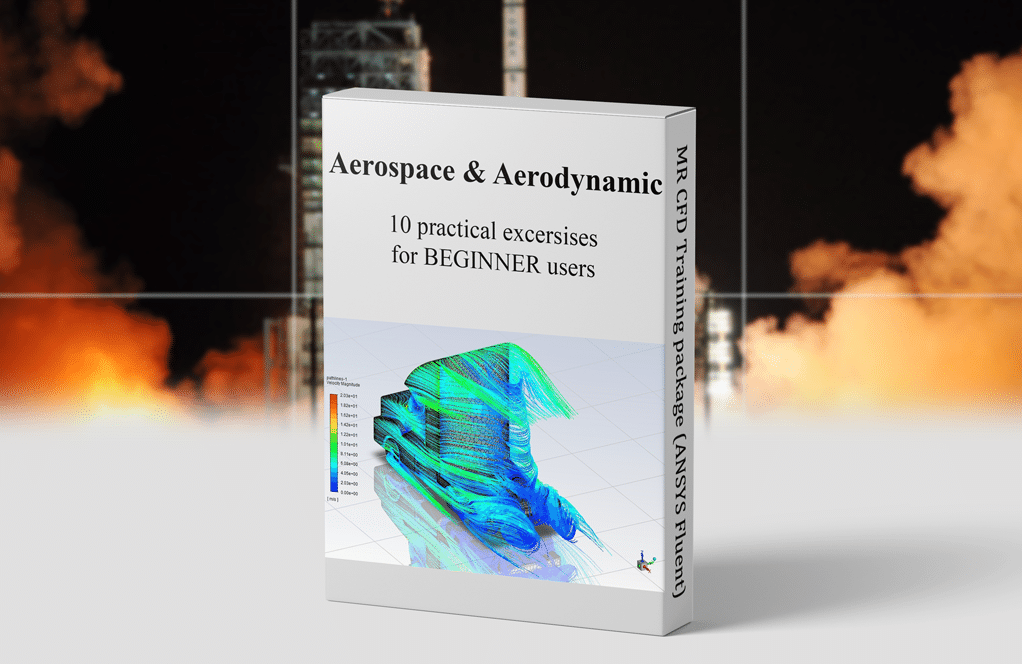
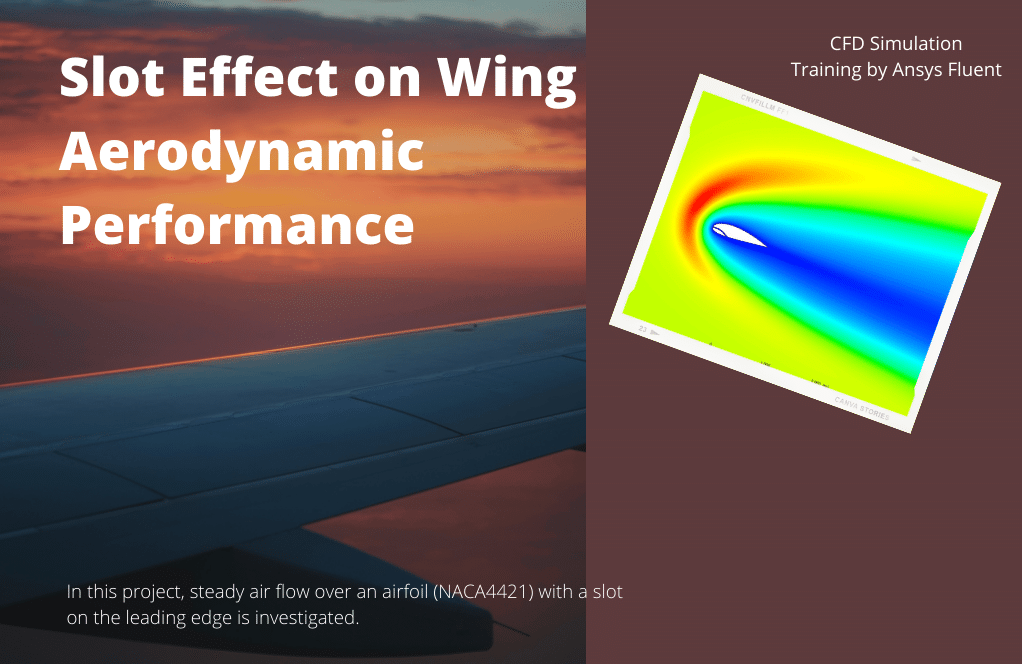

Carolyne McClure –
: What is the main objective of this Car Audi External Airflow CFD Simulation?
MR CFD Support –
This simulation aims to analyze the airflow around an Audi car, which is crucial for understanding the aerodynamic performance of the vehicle.
Mr. Chase Hartmann PhD –
Can this simulation be used to improve the aerodynamic design of a car?
MR CFD Support –
Absolutely! The results from this simulation can provide valuable insights into the aerodynamic forces acting on the car, which can be used for design optimization.
Hillary Towne –
The use of CFD in this simulation is truly innovative!
Ms. Elenora Carter –
I was fascinated by how the drag force was evaluated and minimized. Can you share additional insights into what optimizations methods you applied to reduce drag?
MR CFD Support –
The simulation focuses on evaluating the drag force at a specific speed without explicitly detailing any optimization methods. To minimize drag, computational fluid dynamics allows engineers to analyze airflow patterns and pressure distribution. They may modify surface geometry, smooth edges, and streamline the body to reduce flow separation and turbulence. In this project, an accurate analysis was conducted to ascertain the influence of design features and flow conditions on drag but the implementation of any optimizations would typically occur as a separate process, using insights gained from this simulation.
Abigail Schaden –
I’m impressed by how comprehensive the simulation seems to be! It appears every aspect of the external flow around the Audi A4 2017 has been meticulously examined, which is paramount for accurate aerodynamics analysis. The focus on ensuring the convergence of drag force and detailed observation of pressure forces versus frictional forces offer in-depth insight that’s beneficial for both design evaluation and academic purposes.
MR CFD Support –
Thank you so much for your positive feedback! We’re delighted to hear that you appreciate the meticulous efforts put into examining every aspect of the airflow around the Audi A4 2017. Ensuring an accurate and in-depth analysis is one of our top priorities, and we’re glad it met your expectations. If you ever need further assistance or have any inquiries regarding our simulations, we’re here to help!
Orion Stiedemann DVM –
The Audi external flow training provided an in-depth look into vehicle aerodynamics. Kudos to the team for delivering a comprehensive and practical approach to CFD simulations using ANSYS Fluent. It’s impressive to see such a complex and relevant application handled so skillfully!
MR CFD Support –
Thank you for your positive feedback! We’re thrilled that you found the training valuable and applicable. Our team strives to enhance computational fluid dynamics learning experiences. Your satisfaction with the Audi external flow CFD simulation insights reinforces our commitment to providing quality educational content. If you have further inquiries or need assistance with other simulations, we’re here to help!
Dr. Mike Boehm –
I’m impressed by how thoroughly the AUDI car simulation captured the distribution of pressure and drag on the vehicle’s surface at high speeds. The detailed approach in analyzing the airflow separation and subsequent forces clearly demonstrates the software’s sophisticated capabilities.
MR CFD Support –
Thank you for taking the time to leave such a thoughtful review! We’re delighted to know that the simulation met your expectations and provided valuable insights into the vehicle’s aerodynamic performance.
Lorenza Wilkinson –
This training exceeded my expectations. Seeing the relationship between the shape and angles of the Audi car with the drag force was clarified excellently through your simulations. The detailed analysis of pressure and frictional forces along with where they occur was truly insightful. Fantastic job on the meshing and convergence criteria – the visuals in the course made it really graspable.
MR CFD Support –
We are thrilled to hear that our training on Car (AUDI) External Flow CFD Simulation was so comprehensive and easy to understand. Your satisfaction with the detailed approach and visualization of simulation data is incredibly gratifying. Thank you for choosing our products and taking the time to provide your positive feedback!
Meagan Gerhold –
I just completed the Car (AUDI) External Flow CFD simulation course and I was impressed by how detailed the training was, especially the part where we tracked the drag force changes during the iterations to ensure proper convergence. Real-world application of these concepts seems more approachable now.
MR CFD Support –
Thank you for your positive review! We’re glad to hear that our Car (AUDI) External Flow CFD simulation course was helpful and provided you with the detailed understanding you were looking for. It’s wonderful to know that the training has made real-world applications more accessible for you. If there’s ever more to learn or any way we can assist you further, please don’t hesitate to reach out.
Eloise Armstrong –
I’m excited about how realistically ANSYS Fluent can simulate air flow around a car! Will using a finer mesh near the car body significantly change the drag value detected, or has it been optimized in this training?
MR CFD Support –
We’re delighted to hear you’re pleased with the simulation capabilities! The mesh in this training is refined specifically near the car’s surface to improve the accuracy of the calculation in areas with complex flow, like around the car body. As such, the meshing strategy used is designed to provide a balance between computational efficiency and result precision. This means that it is generally optimized to capture nuances like the drag force most effectively. While further refining the mesh may yield denser points of data and might affect the drag value, often the changes are within acceptable engineering tolerances, especially once mesh-independency has been achieved.
Mercedes Ruecker –
Your CFD results on the Audi A4 were extremely insightful. It gave a clear picture of fluid dynamics and drag, making complex concepts easily understandable. Impressed!
MR CFD Support –
We are thrilled to hear that our CFD simulation of the Audi car’s external flow offered you valuable insights. Thank you for acknowledging our efforts to make complex aerodynamics concepts approachable. Your positive feedback is greatly appreciated.
Kattie Gibson –
The conclusion about the drag force on the car was insightful. Seeing the precise numerical values and thorough analysis helped me understand the impact of pressure and friction forces on the drag. The detailed explanation of pressure distribution and flow separation enhanced my grasp of the aerodynamics around vehicles.
MR CFD Support –
We appreciate your positive feedback and are glad to know you found the analysis informative. Understanding the complexities of vehicle aerodynamics can be quite fascinating, and we are pleased that our CFD simulation could clarify these concepts for you. If you have further questions or require more in-depth knowledge, feel free to reach out. Thank you for choosing MR CFD as your learning platform!
Mr. Torrance Gorczany –
I was really impressed with the detailed analysis of airflow around the car. The way the drag force and flow separation were explained made it easier to understand how this influences the car’s performance.
MR CFD Support –
Thank you for your kind words! We’re thrilled to hear that our simulation of the Audi car’s external flow has provided you with clear insights into the aerodynamics and performance factors. Your understanding and satisfaction are our top priority.
Miss Madonna Hegmann –
I’m absolutely thrilled with the in-depth analysis of airflow over the Audi A4 using ANSYS Fluent. The detailed examination of drag forces and the pressure distribution on the car’s surfaces really enhanced my understanding of vehicle aerodynamics. Stellar job!
MR CFD Support –
Thank you so much for your wonderful review! We’re glad to hear that our training on the external flow simulation for the Audi A4 has enriched your knowledge of aerodynamics. If you ever have any further questions or need assistance with your CFD projects, feel free to reach out!
Jesus Reichert DDS –
I really appreciated the in-depth explanation on how the drag force was determined for the Audi car model simulation. It was quite revealing to see the balance between pressure forces and frictional forces and how the geometry affects the flow separation at both the front and back of the vehicle.
MR CFD Support –
Thank you for your positive feedback! We’re thrilled to hear that you found the simulation details insightful and that the explanation of the forces involved in the AUDI car simulation was revealing to you. If you have any further questions or need more information, feel free to reach out. We’re always here to help!
Retha Boyer –
What an incredibly detailed simulation of airflow around the AUDI A4! The explanation of how the pressures and forces distribute across the car’s surface really gives insight into the complex dynamics of automotive aerodynamics.
MR CFD Support –
Thank you so much for your positive feedback! We’re thrilled to hear that you found the simulation details enlightening and that it helped you understand automotive aerodynamics better. If you have any further questions or need more insight into our products, feel free to reach out. We’re here to help!
Stephon O’Conner –
I’ve always been fascinated by automotive aerodynamics, and this simulation of the Audi-A4 has been an eye-opener on how airflow affects vehicle design. Convergence at stupendous speeds and meticulously ensuring drag force readings reach a constant value shows the integrity of this test suite. Kudos!
MR CFD Support –
Thank you for your kind review! We’re delighted to hear that our CFD simulation of the Audi-A4 was insightful for you. Automotive aerodynamics is an exciting area of study, and accurately replicating these conditions is crucial to improvement in vehicle design. We take pride in our detailed approach and are glad it resonates with our users. Your feedback is highly appreciated!
Ignacio Ondricka –
This training was incredibly insightful! Learning about how flow separation impacts drag on the Audi car has changed the way I look at vehicle aerodynamics.
MR CFD Support –
Thank you for your kind words! We’re thrilled to hear that our training course was helpful to you and gave you a new perspective on vehicle aerodynamics. Your understanding of these principles is important for any future work in this field.
Collin Ortiz –
I recently completed the ANSYS Fluent training on the Car (AUDI) External Flow Simulation and was impressed with the level of detail in explaining aerodynamics. Understanding how the pressure distribution affects drag and the occurrence of flow separation was really insightful. Great job on incorporating real-life vehicle dynamics into the CFD model!
MR CFD Support –
Thank you for taking the time to leave such a positive review! We’re thrilled to hear that our Car (AUDI) External Flow CFD Simulation course provided you with detailed insight into vehicle aerodynamics and that you found the real-life application of CFD modeling valuable. We appreciate your feedback and look forward to providing you with more quality learning experiences!
Amanda Marks –
I just completed the Car External Flow CFD Simulation course on ANSYS Fluent for the AUDI A4 – it was quite an immersive experience! Seeing the shear force contours and understanding flow separation has given me a much better grasp of aerodynamic performance in automobiles. It’s enthralling to see how changing angles and shapes affect the overall drag and flow characteristics of a vehicle. Learning to calculate and interpret the drag force of 1684.74 Newtons with high fidelity was a definite highlight!
MR CFD Support –
We’re delighted to hear that you had a great learning experience with our Car External Flow CFD Simulation course for ANSYS Fluent! Your grasp of aerodynamics and the detailed insights you’ve gained on drag estimation are exactly the outcomes we aim for. Understanding the impact of shape and angles on vehicular flow separation is crucial for performance modeling, and we’re glad our course could enhance your knowledge. Thank you for your positive feedback and we wish you more success in your future simulations!
Eusebio Haley DDS –
What a comprehensive analysis! The details on the geometry and meshing accuracy around the vehicle surfaces were particularly insightful, and it’s interesting to see the high level of detail observed in the pressure and drag force distributions. Well done!
MR CFD Support –
Thank you for your positive feedback! We’re delighted to hear that you found the analysis comprehensive and insightful. It’s always our aim to provide detailed and accurate data to help understand complex phenomena like external aerodynamics. We appreciate your compliments on our work with the Audi airflow simulation. If there’s anything more you wish to learn or any further simulations you’re interested in, feel free to reach out!